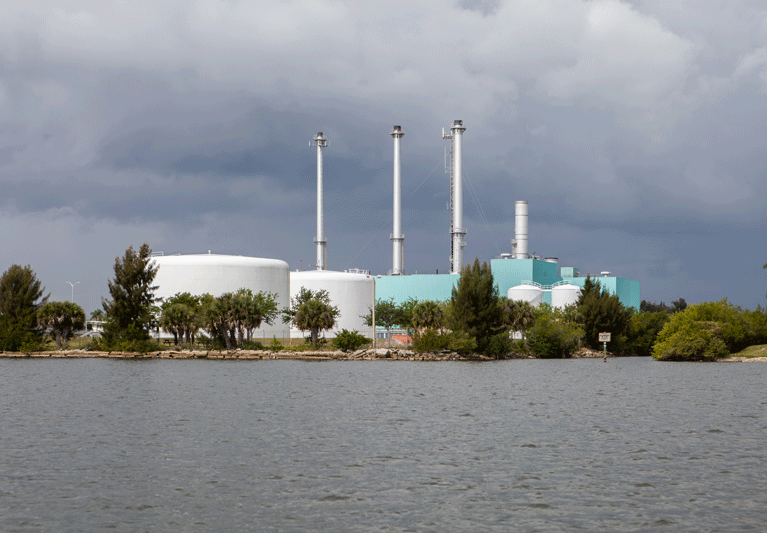
Florida Power & Light and Vero’s attorney plan to have a draft of a formal contract for FPL to purchase Vero Electric at city hall by next Wednesday for City Council members to consider at their Oct. 17 meeting.
FPL’s Regional Director of External Affairs Amy Brunjes last week gave the Indian River Shores Town Council an update on how the full sale of Vero Electric’s assets and 34,000 customers is progressing.
Outside the meeting, Brunjes said there would be “no surprises” in the document, that it would adhere to the letter of intent already vetted by the council and the city’s Finance and Utilities commissions, with the addition of what she characterized as “about 100 pages of legal detail.”
Of the two big hurdles that stood in the way of a closing – a dispute over whether Vero owed Orlando Utilities Commission $20 million or $50 million in contract cancellation penalties, and Vero’s successful exit from the Florida Municipal Power Agency co-op – the first apparently has been overcome and the campaign to clear the other is very much in the works.
Brunjes said FPL came in with some inducements that were attractive enough to OUC to facilitate a deal in which OUC will accept the lower $20 million penalty from Vero, and she said FPL has this side agreement with OUC in writing.
City Manager Jim O’Connor confirmed that he’s operating under that same information. “We have not received anything other than an email saying that OUC was very close to completing the agreement with FPL, so we are moving forward on the basis of the $20 million buyout. I believe FPL would advise us if there was a concern,” O’Connor said, referring to an Aug. 30 email from OUC Vice President Jan Aspuru.
In that email, Aspuru told O’Connor, “I wanted to let you know that OUC has now reached agreement with FPL on all terms of the proposed energy sale agreement, which must now be submitted for approval by OUC’s Board once the Termination and Settlement Agreement with the City is agreed upon.”
As for Vero disentangling itself from its 30-plus year relationship with the FMPA power co-op and its long-term power supply contracts requiring Vero to take electricity from three separate power plants, FMPA executives are in the process of taking Vero’s exit proposal on the road to the city councils and utility authority boards of the municipal utilities that need to approve letting Vero out of its membership.
Throughout August and September, FMPA also called meetings with the various bond-rating agencies to ensure that Vero’s exit and the assumption of Vero’s share of the risk and debt – in exchange for the consideration of $108 million paid to FMPA – would pass muster with all the relevant bondholders and analysts, so the FMPA’s credit rating would not fall due to having one less member.
When Vero joined the FMPA, the city pledged the utility revenues from its customers, in perpetuity, to back the bond debt accumulated by the FMPA and its various electric generation projects and power entitlement contracts.
So far, FMPA officials have made presentations to seven of the other 19 cities about the deal.
One city council, the elected leaders of the municipality of Starke, has already approved Vero’s exit and the FMPA notes in a schedule that they are just waiting on the final documents.
The FMPA hopes to conclude these presentations and secure supportive votes of all the various boards by the end of 2017 or early 2018, putting Vero and FPL on track for a closing date somewhere between October and December 2018.
The next FMPA board meeting where the Vero sale will be discussed will be Oct. 19 at the co-op’s Orlando headquarters.
Mayor Laura Moss and City Manager O’Connor have been attending these meetings on behalf of Vero and both have reported that FMPA President Jacob Williams and his staff have been very cooperative.
Williams and his cohorts have made it very clear that their continued diligence to facilitate Vero’s exit is contingent upon their time not being consumed fighting what the FMPA saw as regulatory assaults the past few years in Florida’s legislature, at the Florida Public Service Commission or the Office of the Auditor General.
Pro-sale activists and lobbyists hired by Indian River County have pushed mightily in the past for regulation of and fiscal accountability from the FMPA and its leaders.



